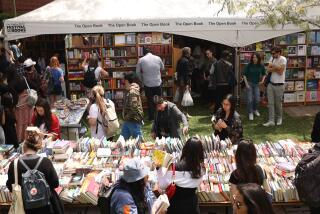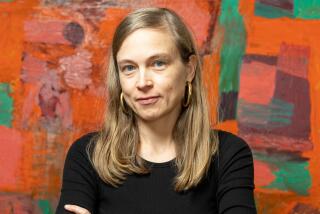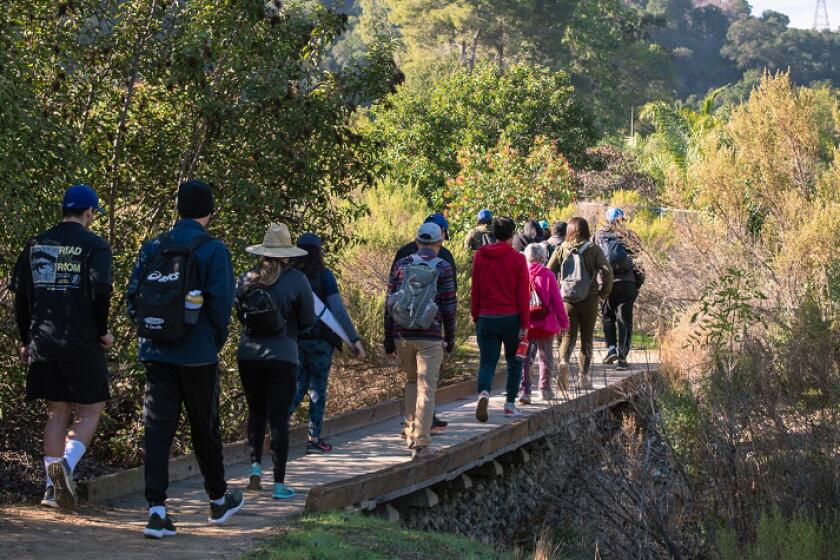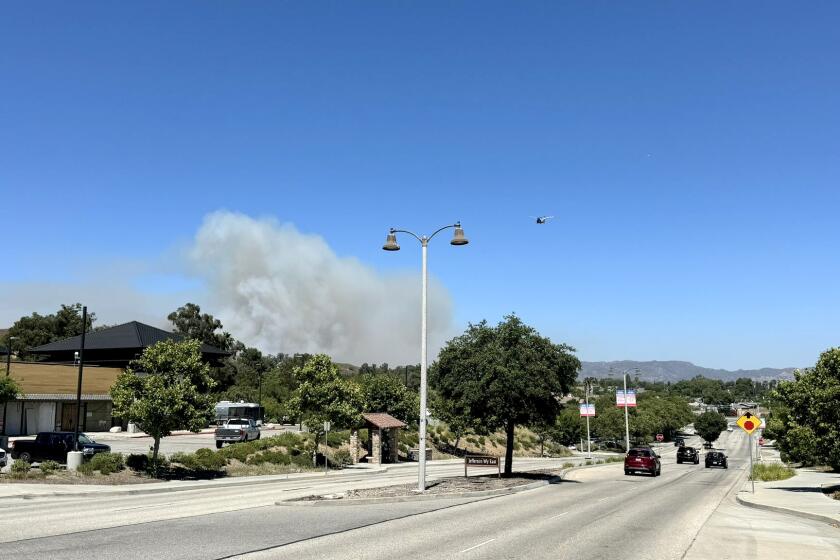Los Angeles Times book prizes awarded to literary veterans, emerging authors
Abortion, gun violence, the global refugee crisis and the degradation of the Great Lakes were among the subjects of books honored Friday at the 38th annual Los Angeles Times Book Prizes.
The awards were presented at USC’s Bovard Auditorium on the eve of the two-day L.A. Times Festival of Books, which will feature more than 500 writers, musicians, artists and chefs. The ceremony, hosted by Times Book Editor Carolyn Kellogg, recognized 11 literary works published last year by established authors and emerging voices.
Novelist Mohsin Hamid won the night’s fiction prize for “Exit West,” his novel about two refugees seeking to escape the violence in their homeland. Reporter Dan Egan picked up the history prize for “The Death and Life of the Great Lakes,” which spells out the harm done to the ecosystem of North America’s Great Lakes.
Egan called his book the product of 10 years of work with the Milwaukee Journal Sentinel, and noted that “things are tough” at that publication.
“Newspapers are more important than we know, and they’re in great peril,” he told the audience.
Jason Reynolds won the prize for young adult literature for “Long Way Down,” about a 15-year-old with a gun who is deciding whether to exact revenge. And Joyce Carol Oates received the mystery/thriller prize for her “A Book of American Martyrs,” which centers on two men — an abortion provider and the man who murders him — and the fallout from that crime.
In its review, The Times called Oates’ novel “painful and demanding and sometimes nihilistic.” But in her remarks Friday, the author said the book ends on a “somewhat upbeat note.”
“I see real faith and hope in the next generation,” she told the audience. “I had no idea that we would be in this sort of a youth revolution.”
Among the other winners were Nancy MacLean, who received the prize for current interest for “Democracy in Chains: The Deep History of the Radical Right’s Stealth Plan for America”; Laura Dassow Walls, who took the biography prize for her book “Henry David Thoreau: A Life”; and Robert M. Sapolsky, who received the science and technology award for “Behave: The Biology of Humans at Our Best and Worst.”
The Art Seidenbaum Award for First Fiction went to Jenny Zhang for “Sour Heart,” a collection of stories about Chinese American girls growing up in New York City. The poetry prize was awarded to Patricia Smith, whose collection “Incendiary Art: Poems” examines maternal grief and the brutal murder of Emmett Till.
Smith thanked her father, who was part of the Great Migration from Arkansas to Chicago, for teaching her “the tradition of the back porch.”
“He taught me to look at the world in terms of the stories it could tell,” she said.
The award for graphic novel/comics went to the cartoonist Leslie Stein for her book “Present.” The ceremony also honored Benjamin Taylor, winner of the Christopher Isherwood Prize for Autobiographical Prose. His memoir, “The Hue and Cry at Our House: A Year Remembered,” drew from Taylor’s memories as an 11-year-old boy who met John F. Kennedy in Fort Worth, just hours before an assassin changed the course of a nation.
Taylor, in his remarks to the audience, described autobiography as “a salvage operation against the menace of oblivion.”
Glory Edim received The Times’ Innovator’s Award for creating Well-Read Black Girl, a Brooklyn-based book club and digital platform that brought readers and writers together to discuss black female authors.
Los Angeles novelist John Rechy, a first-generation Mexican American who has chronicled gay life in America, received the Robert Kirsch Award for lifetime achievement. The 87-year-old novelist reflected on the extraordinarily negative review his first novel, published in 1963, received from Kirsch, then a reviewer for The Times.
Kirsch so disliked “City of Night,” Rechy’s story about the meanderings of a gay male prostitute through the back alleys and dark streets of America, that he wouldn’t call it a novel, referring to it instead as “a thing.”
Kirsch’s son, writer and critic Jonathan Kirsch, presented the award to Rechy.
“Tonight we right that wrong,” the younger Kirsch told the crowd.
More to Read
Start your day right
Sign up for Essential California for news, features and recommendations from the L.A. Times and beyond in your inbox six days a week.
You may occasionally receive promotional content from the Los Angeles Times.









